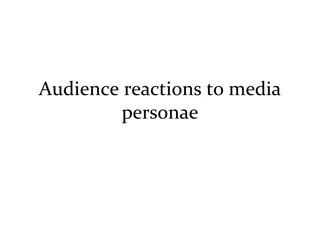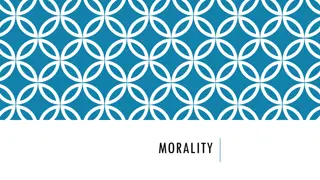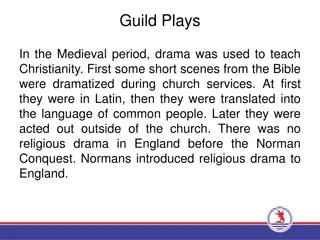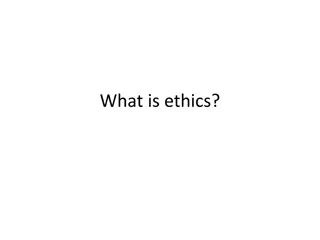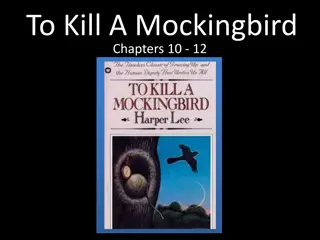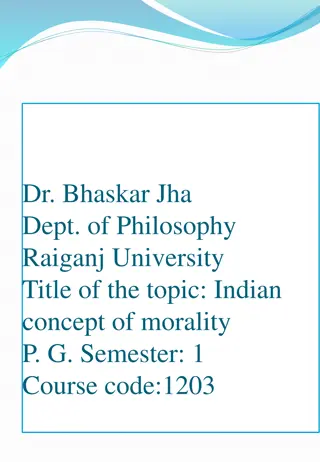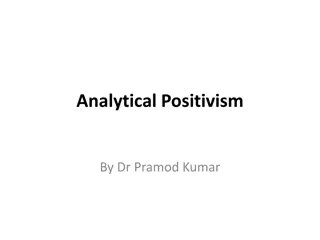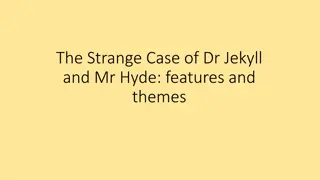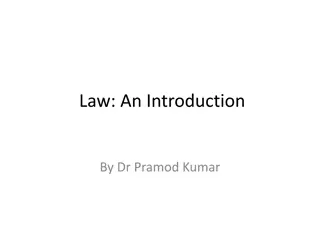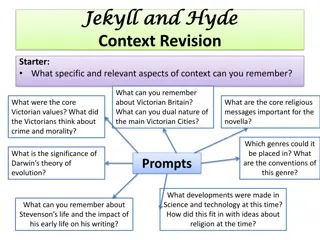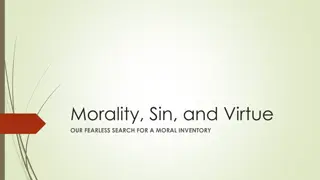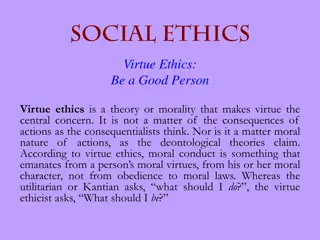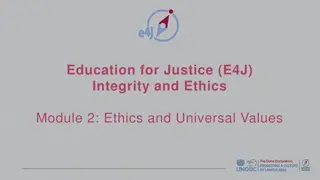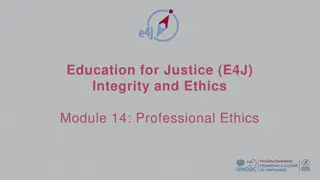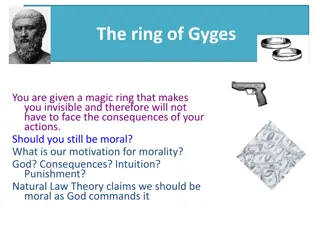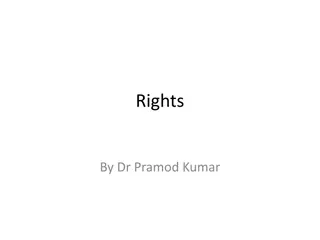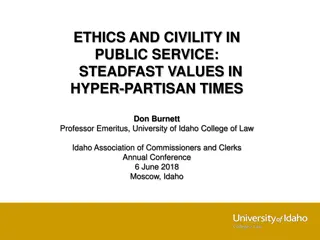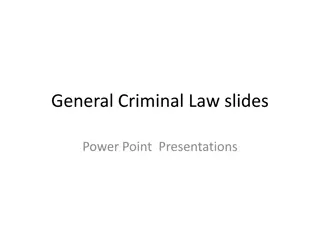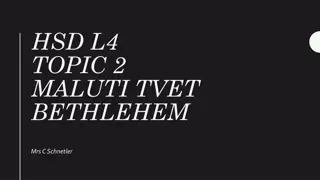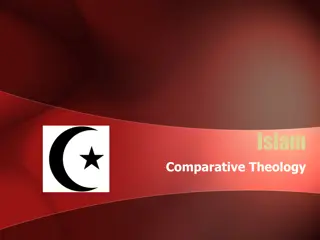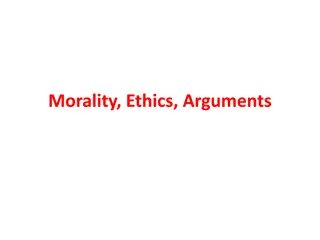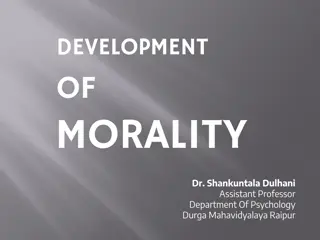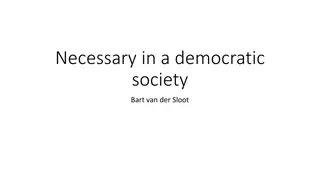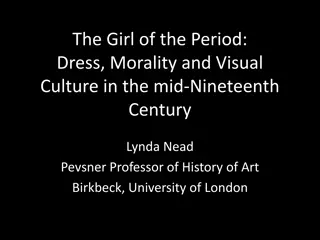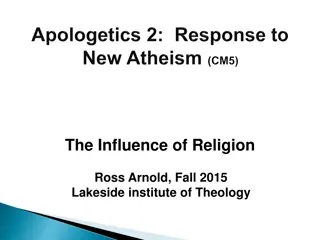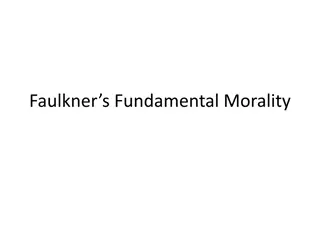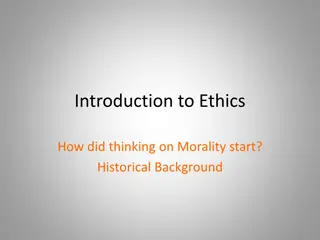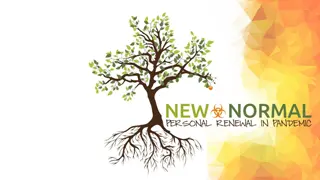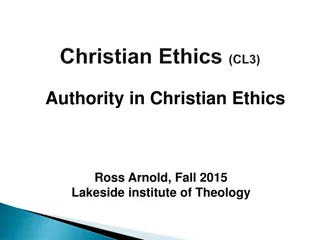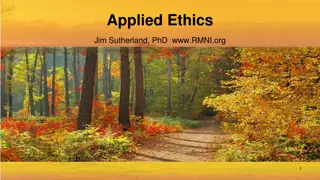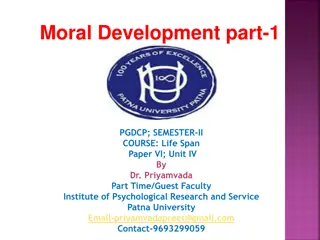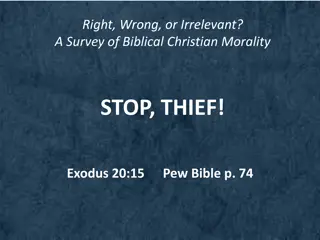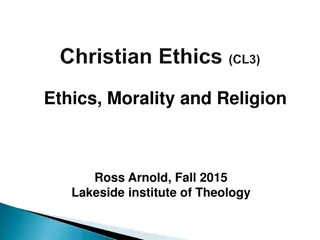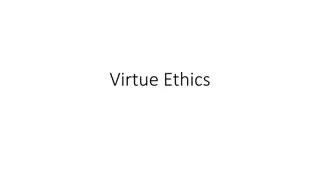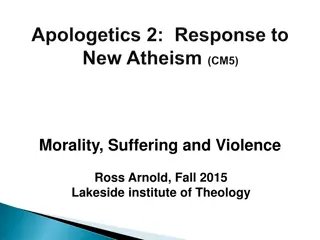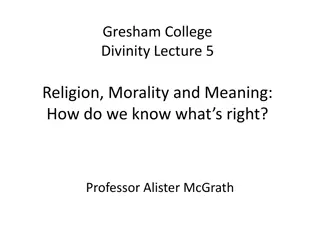Understanding Relativism and its Impact on Critical Thinking
Relativism poses a challenge to critical thinking by asserting that truth is subjective and varies from person to person or society to society. While some forms of relativism, like relativity, can be rational, global relativism faces self-referential inconsistency. Values relativism is commonly appl
0 views • 25 slides
Understanding Audience Reactions to Media Personae
Audience reactions to media personae vary based on factors such as perceived realism, suspension of disbelief, character personality, and viewer affinity. This analysis explores how audience members engage with characters in media, evaluating morality, admiration, and perspective within the portraye
3 views • 49 slides
Understanding Morality and Its Influences in Human Life
Morality is a fundamental aspect of human existence, shaping behavior based on cultural, religious, and philosophical beliefs. It provides a system for discerning right from wrong and fosters virtues like compassion and justice. This set of rules and principles guides individuals in making sound mor
0 views • 30 slides
Medieval Drama: Guild Plays and Moral Lessons
Learn about the evolution of medieval drama in England, from religious guild plays to morality plays and interludes. Guild plays, including mystery and miracle plays, were performed by craft guilds to teach Christianity through biblical stories. Morality plays like "Everyman" aimed to impart moral l
3 views • 9 slides
Understanding Religious Conflict: Definition and Types Explored
Religious conflict is a complex and recurring concept throughout history. Scholars have defined it as disagreements between religious groups. This conflict arises from contentious issues touching on ideology, morality, power, and identity, influenced by various socio-political, economic, and cultura
1 views • 13 slides
Understanding Ethics: The Study of Morality and Human Actions
Ethics, derived from the Greek word ethos, explores the principles that guide human behavior, relationships, and moral judgments. It delves into what is right or wrong, good or bad, just or unjust, aiming to provide a framework for ethical conduct in society. With a focus on moral philosophy, ethics
5 views • 32 slides
Insights from Chapters 10-12 of "To Kill a Mockingbird
Jem and Scout's experiences in Chapters 10-12 reveal their growing understanding of the complexities of their town, Maycomb. From Atticus's shooting skills to Mrs. Dubose's passing and the children's visit to Calpurnia's church, the chapters explore themes of morality, racial prejudice, and family d
0 views • 4 slides
Exploring the Indian Concept of Morality in Philosophy
Delve into the intricate discussions surrounding morality in Indian philosophy, exploring the distinctions made between what is and what ought to be. Compare Western and Indian perspectives on morality and examine key criteria proposed by philosophers like Kurt Baier and Frankena. Discover how India
4 views • 20 slides
Overview of Analytical Positivism in Legal Theory
The Analytical Positivism school, also known as the Austinian school, emphasizes a sharp separation between law and morality. It views law as a command and emphasizes the importance of law as it is, rather than how it ought to be. This approach, championed by thinkers like John Austin and Jeremy Ben
0 views • 19 slides
Exploring the Themes and Symbolism in Dr. Jekyll and Mr. Hyde
In "The Strange Case of Dr. Jekyll and Mr. Hyde," Robert Louis Stevenson delves into the duality of human nature through the transformation of Dr. Jekyll into Mr. Hyde. This novella portrays the hidden dark side within individuals and explores the moral dichotomy of humanity. Themes such as appearan
0 views • 7 slides
Understanding Law: An Introduction by Dr. Pramod Kumar
Law, as explored in "Law: An Introduction" by Dr. Pramod Kumar, encompasses various rules, principles, and systems that regulate human behavior and uphold justice, morality, and order in society. The term "law" holds different meanings across cultures and religions, reflecting diverse legal framewor
0 views • 15 slides
Understanding Context in Jekyll and Hyde: Victorian Britain and Robert Louis Stevenson
Explore the social, economic, and moral landscape of Victorian Britain as reflected in Robert Louis Stevenson's life and novella, "Strange Case of Dr Jekyll and Mr Hyde." Delve into the dual nature of Victorian cities, core values, views on crime and morality, religious influences, and the significa
0 views • 12 slides
Exploring Morality, Sin, and Virtue: A Journey of Self-Discovery
Dive into the profound exploration of morality, sin, and virtue, uncovering the essence of self-reflection and ethical understanding. From delving into the definitions of these concepts to understanding the nature of sin and virtue, embark on a transformative path towards enlightenment and inner gro
1 views • 22 slides
Understanding Virtue Ethics in Aristotle's Philosophy
Virtue ethics places virtue at the center of morality, emphasizing moral character over obeying laws or focusing on consequences. Aristotle's influence on virtue ethics is significant, highlighting the importance of striving to be a virtuous person whose actions stem from a virtuous character. Accor
6 views • 24 slides
Understanding Ethics, Values, and Universal Morality
Explore the concepts of ethics, universal values, and morality in a multicultural context through Education for Justice (E4J) Integrity and Ethics Module 2. Delve into topics such as the Universal Declaration on Human Rights, enacting universal values, moral relativism, and more. Gain insights on th
6 views • 14 slides
Understanding Professional Ethics in Career Development
This educational module delves into personal, theoretical, and professional ethics, exploring potential conflicts between role morality and personal morality. Students will gain insights on applying ethical principles in their careers, understanding the role of professional codes of ethics, and reso
0 views • 9 slides
Understanding Natural Law Theory: Morality and Divine Commands
Natural Law Theory, influenced by thinkers like St. Thomas Aquinas and Aristotle, posits that morality is derived from rational thought and divine commands. The theory emphasizes the importance of following moral absolutes to establish a right relationship with God and achieve eternal life. By study
1 views • 36 slides
Understanding Rights: Definitions and Importance
Rights are essential entitlements recognized and enforceable by law, shaping governments, laws, and morality. Various definitions by legal scholars highlight the nature and importance of rights in society, emphasizing the relationship between rights and duties. Understanding rights is crucial for up
0 views • 34 slides
Ethics and Civility in Public Service: Upholding Steadfast Values
In a hyper-partisan world, Don Burnett emphasizes the importance of ethics, morality, and civility in public service. He delves into the foundation of trust, shared ethical values, and the elements of the rule of law that are essential for a well-functioning government. The connection between ethics
1 views • 26 slides
Understanding General Criminal Law: Principles and Relationships
General Criminal Law encompasses rules governing offenses and their penalties, exploring the definitions of offenses, relationships with social sciences, other branches of law, and auxiliary sciences. This presentation covers the importance, sources, and branches of criminal law, highlighting its in
1 views • 230 slides
Ethical Theories: Divine Command vs. Virtue Theory Explained
Divine Command Theory asserts that morality is derived from God's commands, contrasting with Virtue Theory which focuses on developing moral virtues to achieve human flourishing and excellence. Divine Command Theory relies on religious texts, while Virtue Theory emphasizes the cultivation of virtues
0 views • 24 slides
Understanding Socio-Affective Development in Infants and Children
Socio-affective development focuses on how individuals interact with others and manage their emotions. It is influenced by factors such as personalities, morality, emotions, and spirituality. Attachment theory, proposed by John Bowlby, explains how infants form relationships with caregivers, startin
0 views • 16 slides
Comparative Theology of Islam: Understanding Different Views on God, Man, and the Universe
Islam, a monotheistic religion, originated in the 7th century through revelations to Prophet Muhammad. The belief system, centered around the Qur'an and Hadith, emphasizes monotheism, morality, and worship. With divisions like Sunni and Shia, Islam has diverse beliefs on salvation, the afterlife, an
1 views • 28 slides
Understanding Morality, Ethics, and Arguments in Philosophy
Morality and ethics are interconnected concepts that delve into the principles of right and wrong conduct. They involve disciplined reflection on human moral intuitions and choices. Valid and invalid moral arguments exemplify the importance of drawing evaluative conclusions from facts. Various ethic
0 views • 9 slides
Understanding Moral Development: Insights and Perspectives
Morality is the belief in right behavior accepted by society. It involves moral behavior, feelings, and judgments. Moral development evolves from childhood to adulthood, influenced by experiences and challenges. Freud's id, ego, and superego theory and Skinner's behaviorism contribute to our underst
0 views • 12 slides
Necessity Test in a Democratic Society: Balancing Public vs Private Interests
The necessity test in a democratic society involves balancing public interests such as security, morality, and environment against private interests. The test determines whether an infringement is necessary and legitimate, or unnecessary and a violation. Different categories like security-related ca
0 views • 36 slides
The Girl of the Period: Dress, Morality and Visual Culture in the mid-Nineteenth Century
Explore the intersection of dress, morality, and visual culture in the mid-nineteenth century through the lens of Lynda Nead's work. Delve into the societal expectations and perceptions surrounding women's fashion and behavior during this era, shedding light on the complex dynamics at play.
0 views • 27 slides
Exploring the Clash Between New Atheism and Biblical Morality
The clash between New Atheists and biblical morality is highlighted in their differing views on ethics, justice, and religious teachings. Christopher Hitchens and Richard Dawkins express skepticism towards biblical moral codes, while advocating for a secular set of ethical principles. The debate enc
0 views • 10 slides
Faulkner's Fundamental Morality: A Deep Dive into the Construction of Morality in Faulkner's Works
In an exploration of Faulkner's narrative innovations, this analysis delves into the intricate layers of his works, focusing on the foundational aspects of beauty and love in the construction of morality. Through multiple narrators and stream of consciousness writing, Faulkner presents a challenging
0 views • 22 slides
Exploring the Origins and Diverse Perspectives on Morality
Explore the historical foundations of morality, from Plato's Ring of Gyges to Cultural Relativism, questioning the basis of ethical behavior and societal norms over time. Delve into philosophical debates that challenge our understanding of right and wrong, highlighting the complexities of moral reas
0 views • 17 slides
Morality in UK Drug Policy: Policy Constellations Analysis
Morality plays a significant role in shaping drug policy in the UK, as revealed by the research conducted by Professor Alex Stevens at the University of Kent. The study investigates the moral commitments underlying different policy positions in UK drug policy debates, highlighting five ethico-politi
0 views • 19 slides
Reflections on Faith, Morality, and Human Nature
The passage from 2 Chronicles emphasizes the importance of humility, prayer, and seeking forgiveness to heal the land. Dr. JD Unwin's research highlights the impact of sexual fidelity on society's success. The staggering statistics on porn consumption within Christian communities raise questions abo
0 views • 17 slides
Understanding Christian Ethics: Sources of Authority and Interpretation of Scripture
Christian ethics explores the proper course of action for humanity, addressing questions of morality, good versus evil, and right versus wrong. This study delves into the roots of authority in Christian ethics and the interpretation of Scripture, examining the Old and New Testaments as foundations f
0 views • 15 slides
Morality and Ethics in Contemporary Society
The discussion explores the societal perception of morally acceptable behaviors, ethical dilemmas, and the erosion of foundational values in the context of religion, morality, and human identity. It addresses issues such as gambling, cohabitation, sexuality, and the impact of rejecting traditional v
0 views • 40 slides
Understanding Moral Development: Key Aspects and Components
Moral development is a crucial aspect of human growth that encompasses the understanding of morality from infancy to adulthood. It involves learning what is right and wrong, along with developing a sense of duty and ethical behavior. This process is influenced by various factors like beliefs, emotio
0 views • 9 slides
Biblical Insights on Stealing and Morality
Explore the biblical perspective on stealing, emphasizing the commandment against theft and the broader implications of stealing from God. Various biblical verses are highlighted to convey the message that stealing is not only about material possessions but also encompasses spiritual aspects. The ar
0 views • 26 slides
Exploring Ethics, Morality, and Religion: A Philosophical Journey
Delve into the intricate realm of ethics, morality, and religion as they intersect in human decision-making. Uncover the fundamental questions of right and wrong, good and evil, and the role of religious beliefs in ethical considerations. Explore ancient and modern perspectives on ethics, from agent
0 views • 9 slides
Insights into Virtue Ethics and Critiques of Kantian Morality by Philippa Foot
Philippa Foot, a key figure in the modern revival of Aristotle's virtue ethics, critiques the Kantian approach to morality. She emphasizes the importance of motivation in cultivating virtues, arguing that feeling bound by morality stems from wanting to lead a flourishing life. Through her works, Foo
0 views • 14 slides
The Debate on Objective Morality: The Atheistic Perspective
The discussion delves into the concept of objective morality and its relation to religious beliefs and atheism. It explores why most people believe in objective morality even though atheists argue against its existence based on evolutionary theories. The argument is centered on the existence of a hi
0 views • 13 slides
Perspectives on Science, Morality, and Meaning in Society
Explore various viewpoints on the intersection of science, morality, and meaning in society through the perspectives of notable figures such as Albert Einstein, Sir Peter Medawar, Bertrand Russell, and Alex Rosenberg. Contemplate the implications of scientific knowledge, the limitations of rationali
0 views • 19 slides

